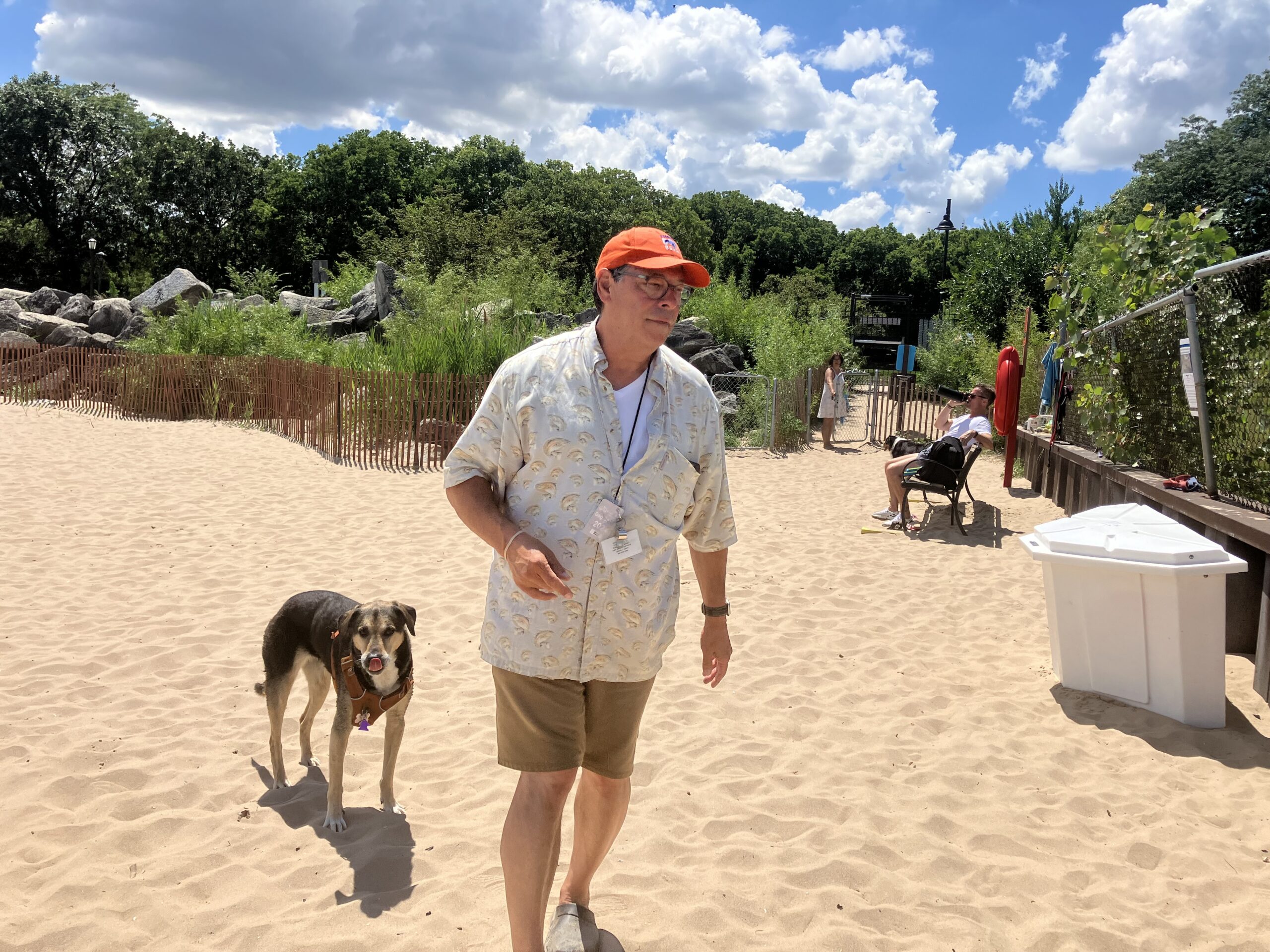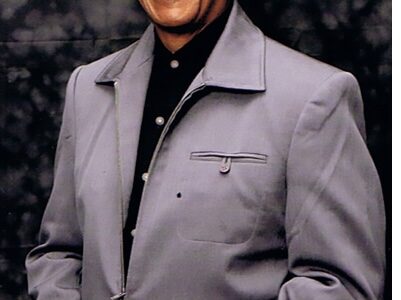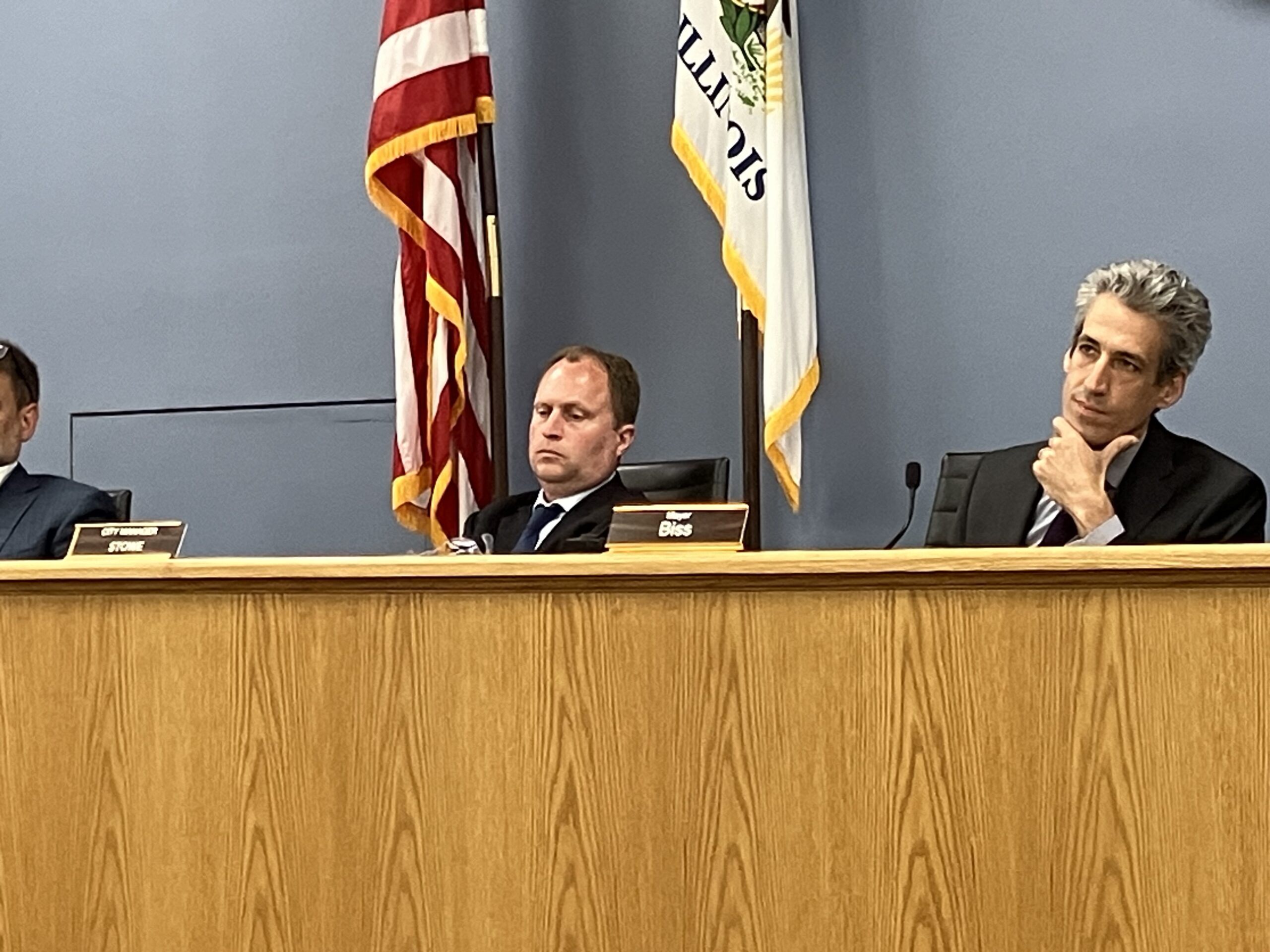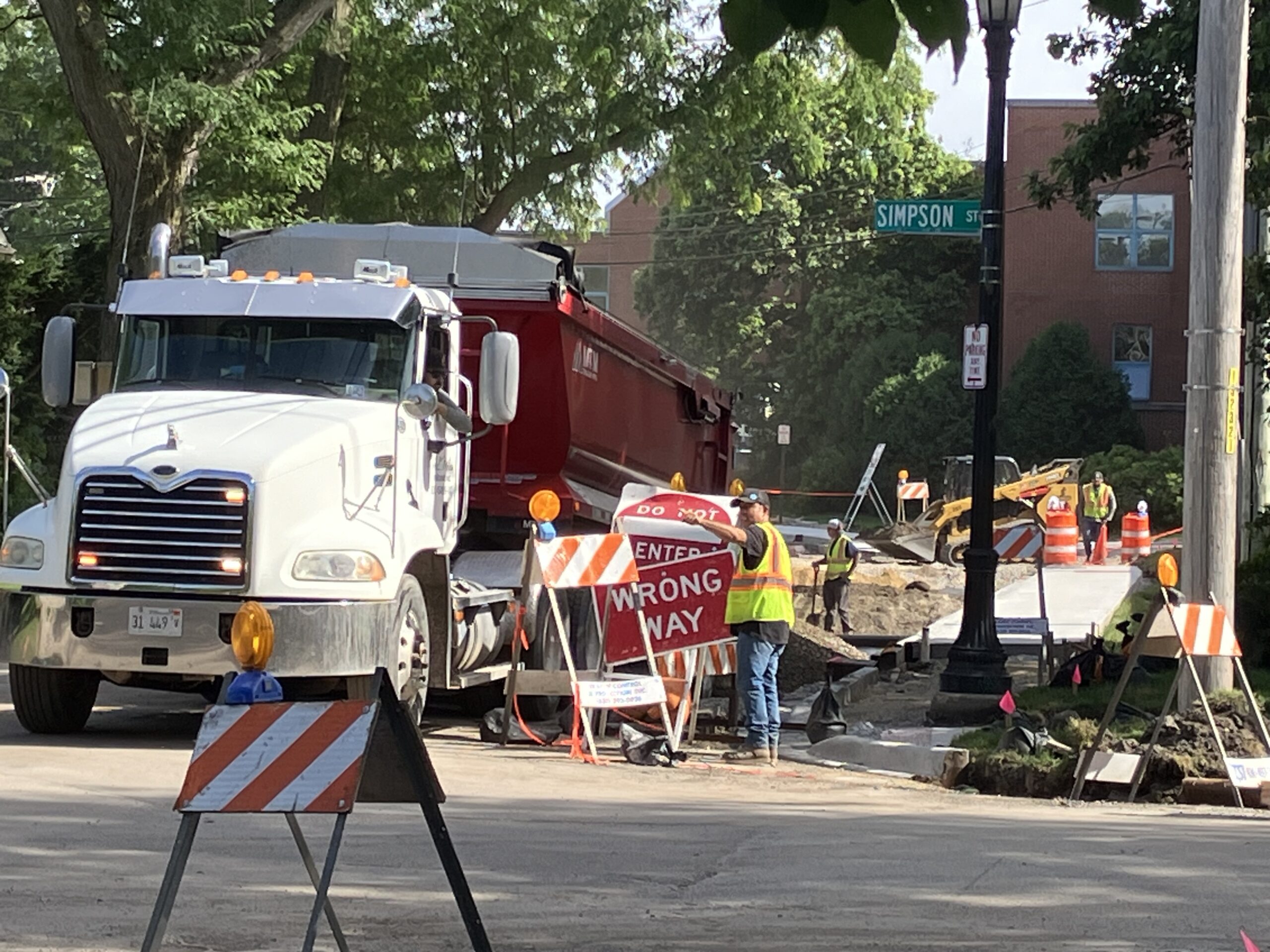Karen Danczak Lyons reflects on ten years at the helm of the Evanston Public Library
By Bob Seidenberg
Evanston Public Library officials were at a definite crossroads in 2012 when they reached out and hit a home run, landing Karen Danczak Lyons as the city’s new library director.
Members of the Board of Trustees were exploring a new funding model at the time, attempting to get out from under the thumb of the city and its severe budget mandates.
A previous board had been forced to close the South Branch.
In the meantime, the Board was in a standoff with a group of community volunteers, who had stepped into the breach, running their own lending library, called the Mighty Twig, in a gutsy effort to keep services going.
Lyons, at one time budget director in the Richard M. Daley administration, did not shrink from the challenges; in fact she looked forward to them, she divulged in an interview on the fourth floor of the main library on June 15.
She is due to step down today, June 17, after serving ten years as the city’s Library Executive Director.
At the time Evanston Public Library trustees reached out to her, Danczak Lyons was the number two person in the Chicago Public Library system.
“I was in what I would call almost like bare knuckle negotiations with the city of Chicago because a new mayor [Rahm Emanuel] came in; his new leadership team came in; and they were adamant that they were going that they were going to dictate – not just to the library but all the city departments – what was going to be done, how it was going to be operated, and how the budget was going to be structured.
“And so the opportunity to come to a new public library and help it kind of secede from the city and negotiate an arm’s-length relationship was incredibly attractive.”
Before Lyon’s arrival, a previous Library Board had voted against contributing to the Evanston Public Library Friends, the residents group, in their operation of the Mighty Twig. But relations gradually normalized between the groups, with library officials recognizing the residents’ effort.
The Friends group tapped a force of more than 60 volunteers, lent books and provided free computer stations in the Chicago-Main neighborhood.
“I don’t think they will ever get enough credit for what they did, in their vision and their ability to execute on that vision, because it’s one thing to have an idea, but another to create it and sustain it for two years,” Lyons said.
“So when I joined the [Library] team and started worrying about what they [the volunteers] were doing – you know, they were retired, they were volunteers and it shouldn’t be their long-term mission. And so I negotiated, we worked together and then we took over that lease and made some changes. So it changed a little bit. But that expectation of that branch and local service we were able to maintain for several years.”

The interview turned the specific questions below:
Q: You made a comment at the June 13 City Council meeting: “We’re no longer a passive library, waiting for you to come and join us.”’ Now you have all kinds of groups using space. (Some of the activities scheduled for today, June 17, included one-on-one tech training, a microwave-gluten-free cooking class, Pride Month Crash Course, “Thriving in the face of Trauma, healing in this Juneteenth Era”).
“You know, we don’t sit here waiting for you to come in and wait for a question or wait for a book recommendation. I mean, we’re happy for you to come in. But that’s not community engagement. I mean, we’re not defined by our walls. We are out [in the community] and then welcoming you in and so [there’s] that continuing dialogue and that community engagement, centering our community’s voices in our work and informing what we do. That’s an important part of what we’re doing and that’s an important part of our equity work.
“I think back to my interview in this room [where the interview was being held] with the Board. Before I came on board, there were a couple of things I wanted to tell them about me and they needed to understand, or I wasn’t the right person for them.
“And one of them was that I approach my work through appreciative inquiry. Another way to term that is what we’ve workshopped here – an asset-based community development. Not that you don’t see things that are wrong or need improvement, but for me, you start with taking a look at what’s working and how you build on what’s working and connect those assets and then add what you need to take the ingredients to go to the next step.
Hard decisions
Q. You had some difficult decisions fall on your watch too, including the closing of the Chicago Ave./Main St. (CAMS) Branch [which succeeded the South Branch and the Mighty Twig] and the North Branch, 2026 Central St., in 2020, both with strong constituencies.
A. It’s hard to take something away from someone, and no one wants to do it, right? And those two little libraries had been so well-loved and so well used for years, and yet it wasn’t like anyone was coming with baskets of money for us to operate these libraries. It took us a while to get to that point.
“I did some public workshops with the community with the board to look at asset-based community development. One of the things I did in Chicago that I did here was say, ‘All right, let’s look at the data, let’s look at the census, let’s create heat maps, let’s bring in experts like Johanna Nyden [the city’s Community Development Director] to talk about economic development.
“Let’s look at housing trends, and see what is and where the gaps are and see what’s needed and see where we should go next. And what that revealed was as wonderful as those libraries were, when you look from a racial equity perspective, when you look at the economics, who’s raising their families on very modest incomes – that can’t get to the library easily because they’re working three jobs to pay their bills – where should we be? And where arethose two beloved branches were is not where we needed them in this community. And so, being responsible for the taxpayers’ money and with an equity lens, we had to close those and look to move them.”
Q. What about the library at Robert Crown [opened as part of the new community center in February 2020.} It later became a big selling point in the fundraising campaign around the new community center.
A. I’m happy to help anybody but our data…right there in that part of Evanston, [showed] there were a lot of people living and nothing close [as far as facilities]. So I knew, within the first six months [as director] there’s a service gap, how are we going to fill this? Then when the city started talking about ‘We’ll, we’re going to do Robert Crown,’ and I think that was and is our biggest and busiest parks facility… so that’s a built-in audience for us. It worked from a service model, and it allowed me to leverage an investment that was occurring. And so after months of me saying when they [other city officials] said ‘Robert Crown and the library,’ then it was finally, ‘Yeah, yeah, we get it, and the library.’’
A separate line for the Library tax
Q. What was your relationship like with Wally Bobkiewicz? After all, he was city manager of the city when library was feeling pinch of spending constraints.
A. Wally was part of the interview panel that hired me. And one of the first things we talked about was how we would create a team, some [representatives] from the city, some from the library, to hammer out the memorandum of understanding that at least began to express that we [the library] serve the city, almost like an arranged marriage, at arm’s length. It was in the Library law that the [Library] Board does approve the budget. (Before then, the city had that power). And one of the things that was important to me, that I’d done in Chicago – and he [the city manager] agreed and we did it here – was to have a separate line on the property tax for the library, for a couple reasons. One, so that I wanted the residents to see how much they were paying and hopefully felt that they were getting a good value for the dollar. For while I could say it was less than [the] Mosquito Abatement [District], not any more. But the other piece of that is that this money came from the property tax bill into our fund. “So it wasn’t commingled. I wasn’t having to do any kind of dance with the city about ‘Where’s our property tax? Hand it over.’ People paid for the library.
“Wally, I think, was a very big supporter of the library [of] the fact that we were changing our business model, that we were changing our role. And it went beyond Wally –it went to the rest of the city, the other city departments, where we’d be talking about city wide issues and I’d say, ‘well, how can the Library help, we’ve got reading rooms, we can help you research for this.’ It took people a moment to realize, that they had never thought of working with the library, and yet we were here to help them.”
Q. Bringing in a social worker during your tenure, how did that come about?
A. “Wally is the one who said, ‘This is a city function.’ The city will pay for it because the whole city is benefiting. You have to be aware of what was going on around us and at that time. A lot of the state and federal grants were being eliminated. And I lived in Rogers Park in the 80s. And I remember when Reagan cut a lot of those social- service/mental- health programs and adults were just out the streets and they didn’t know where to go, didn’t know how to navigate, and it was scary for them and for anybody encountering someone who’s suffering from mental illness or addiction.
So seeing these cuts and knowing that we have public space, we had to get a social worker to help people navigate what they are entitled to and also to inform the staff on how you know, what’s this behavior I’m seeing. What does this mean? Is this someone on the autism spectrum? Is this someone with substance abuse? You approach someone differently depending upon what is happening, and just make it (the library) a calmer, more welcoming place for everybody.”
Q. What figured in your decision to retire now, was reaching ten years a factor?
A. A few things. I do love this library and this work and this staff. When I was looking at where we were with some of these key upcoming projects – such as the Fifth Ward branch, and Family Focus [as the possible site] it’s going to be five years, and I wasn’t ready to sign up for another three to five years. And so that was hard.
Q. So it wasn’t the ten years?.
A. “Right. It’s also true that I have always been pretty clear about who I am and what I believe and how I think the library should run and how we shouldn’t run it. I think it’s going to be difficult to navigate through the need to bring more resources to this library.”
Canary in the coal mine
Q. You suggested something similar in your farewell statement to the Council the other night.
A. “You know, when we were talking about a little bit ago about how we prepared to proceed to close those two beloved libraries, I said to someone on the Council at the time that you’d better look at me as the canary in the coal mine, that there are tough decisions that the city has to make in terms of how they define service, how they invest in providing that service and how they manage expectations. And this library has been cut because our major revenue sources [have] been flat and expenses increased. Especially coming off of 2019, that was absolutely the right decision to make and we were able to control costs and manage. But to think let’s just keep this major source of our revenue [property taxes] flat going forward, you’re going to see a change in what you can do and do at the library.”
Q. Any final comments…
A. “It’s too easy to be afraid to try something; it’s too easy to avoid criticism. It’s too easy to talk about things and not do anything about it. And I’m so proud of the work we do here because we talk about it but then we do it.”




